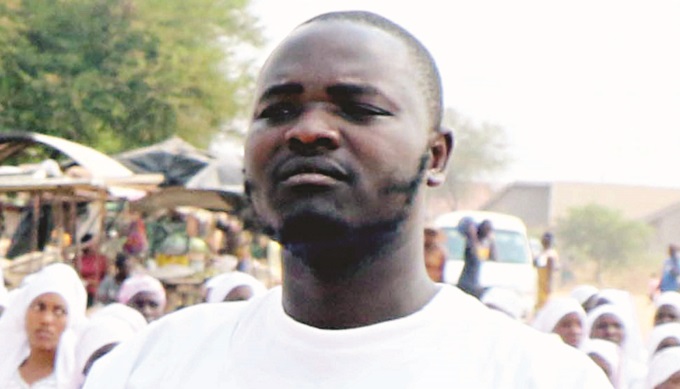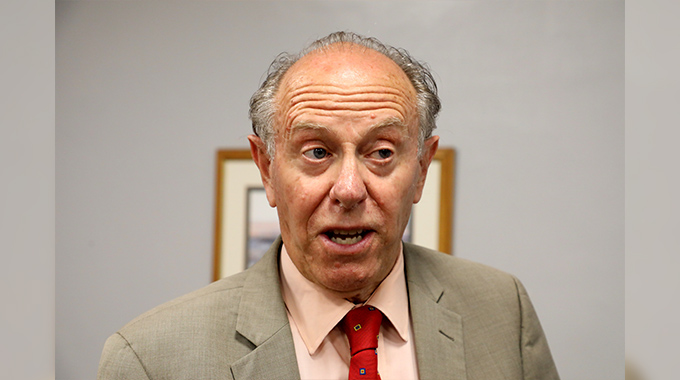Writing Covid-19: When health demands overide funerary cultural practices underpinned by worldviews

Pathisa Nyathi
OF late I have been reading about an ancient Mesoamerican community known as the Maya. They lived in the region of Mexico thousands of years BCE.
It was only after the European invaders, in particular the Spaniards, that their culture began to change when some of them began embracing Christian ideas.
The one aspect of their cultural practices that were of particular interest to me related to their funerary practices, their concepts regarding the afterlife, reincarnation and the construction of their tombs.
After a protracted period reading about the Stonehenge in the Wessex’s Salisbury Plains in England and having spent the better part of my life investigating Ndebele and indeed African cultural practices, it became apparent that the ancients shared several commonalities when it came to rituals pertaining to death, burial, spirituality and ideas about the afterlife.
The ancients lived very far from each other at a time when intercontinental travel was limited. It was only after the Europeans, in particular the Portuguese, made some noticeable strides in shipbuilding and seafaring that traversing the world became relatively easy. It was the likes of Vasco da Gama, Christopher Columbu’s and Bartholomew Diaz who explored the Americas and opened the way for the African slave trade that lasted no less than four centuries that globalisation began.
What is common to all these ancients is their worldview or beliefs which informed and underpinned their cultural practices. How did that come about given the challenges relating to travel and hence to the globalisation of a common worldview?
Equally interesting to observe is the fact that some of the cultural practices of these ancients have fallen into disuse.
The descendants of these ancients find it extremely challenging to interpret the structural and material artefacts of their ancestors. This does not come as a surprise as new ideas have been embraced to a point where ancient beliefs translate to superstition, backwardness and cultural decadence.
Africa, the undisputed cradle of humanity does, to some great measure, still retain elements of a worldview that has been abandoned by the descendants of the ancients who a long time ago also espoused the same ideas, beliefs and concepts. For example, the Nabta Playa, a circle of stones thrust into the ground was a precursor to the Stonehenge and similar megalithic monuments and was found buried in the sands of the Sahara Desert close to the border between Egypt and Sudan.
The structure, that is the Stonehenge and the Nabta Playa shared a common belief in the celestial bodies and their link to events on the earth plane.
The stone structures were solar chronometers which were keenly observed to indicate when certain cultural and ritual practices were to be initiated: cultivation of crops, commencement of rites of passage and the First Fruits ceremonies, inter alia.
Despite centuries of slave trade, colonisation and the advent of both Christianity and Islam in the last two thousand years, African Thought in general and African Traditional Spirituality in particular have endured more so in the rural areas where the post-independence African states have allowed the bifurcated state to continue existing under a cultural regime different from what pertains in urban areas. What was long abandoned by the Mayan people and their counterparts elsewhere has subsisted to this day in some parts of Africa.
This has given rise to the prospect of African Thought holding hope for the explanation and interpretation of many cultural aspects from the ancient past.
I am not surprised therefore that there are commonalities between the Stonehenge and the Mayan civilisations on the one hand and the two and African culture on the other. This is particularly the case when it comes to the aspects of life that are conservative such as ideas relating to death, burial, construction of tombs and the afterlife.
This article’s thrust is to unpack the impact of Covid-19 on traditional African funerary practices. As we do so we shall draw on the beliefs of the Mayan people so that we see the similarities in beliefs and better appreciate how Covid-19 has brought about changes to well established cultural traditions and practices as part of moves to curb the spread of the coronavirus. It all starts with beliefs pertaining to the duality regarding the constitution of human beings. The Mayan people, like black Africans, believed humans comprised material body and spirit/soul. The latter extricated itself from the prison in which it was held and proceeded on a journey to the afterlife, an eternal life within which in the long term reincarnation was realised. These were the essentials behind beliefs that informed and underpinned the numerous cultural practices relating to death, burial, send off of the spirit and related rituals and ceremonies.
For example, the Mayan people, like Africans maintained a night long vigil over the corpse of the deceased. Close family members watched over the body of the deceased which they bathed and clothed prior to burial. Lavish feasting was an integral part of the death rituals. There are many related observances that were performed by the Mayan people.
We have identified a few of them that they observe in common with Africans who, to this day still hold and practice the beliefs and their related cultural practices. It is these cultural practices in Zimbabwe and elsewhere in Africa which are being impinged upon by the new measures which are calculated to curb the spread of Covid-19. The cultural practices, whether relating to death and burial or other cultural phenomena, walk in tandem with the formative and causal beliefs.
However, in this instance the health-inspired cultural practices are enforced from outside with no accompanying underpinning beliefs and cosmologies. The net result is emergence of cultural shock.
Where death is perceived as the entry point to eternity, where the spirit joins its community of the dear departed, the corpse must be surrounded and supported by kith and kin. The spirit knows these and is being directed and assisted to link up with the community of the dear departed in another plane of life. It is these close relatives who possess a package of resources to assist and guide the migrating spirit to navigate its way between death and the journey to the afterlife.
The pall bearers must be relatives of the deceased. I remember well that my father chose his pall bearers before he passed on.
Covid-19 demands the abandonment of such cultural practices without attacking and successfully destroying the underpinning beliefs. The resulting incongruence leads to social stress, a result of the disconnect. Recently I reported on a case of a relative whose corpse was delivered to her home by strangers clad in personal protective equipment(PPEs). They looked more like resurrected Egyptian mummies.
The coffin was wrapped like a parcel of fragile glass. The relatives had to believe in there, there were remains of their relative. The all important goodbyes that are conducted were not done. How could they do that to one they did not see or view?
Of course the farewell is not to the corpse as such but the spirit which continues to linger around for a while before commencing the journey to the underground and beyond. Relatives utter a lot of words as part of the farewell, including their joining the dear departed in future.
The spirit was equipped with words of greetings to the community of ancestors, that the spirit is due to join in the not too distant future — in the afterlife.
All this is no longer done when the deceased is sealed up in a plastic encasing which the relatives are not advised to get anywhere near lest the much feared virus migrates from the dead to the living and send them packing to the same destination where this spirit is headed to.
Without doubt cultural matters relating to death are the most affected when it comes to the impact of Covid-19 and its impact on African cultural practices.
This is as a result of the fact that death is transformative, by releasing the spirit from its housing after which it embarks on a journey to the afterlife.
The spirit has to be assisted in finding its way to and beyond the underworld. It is thus expected that whatever measures are instituted to curb the spread of Covid-19, the ramifications on African cultural practices will be far reaching and deep-seated.










Comments